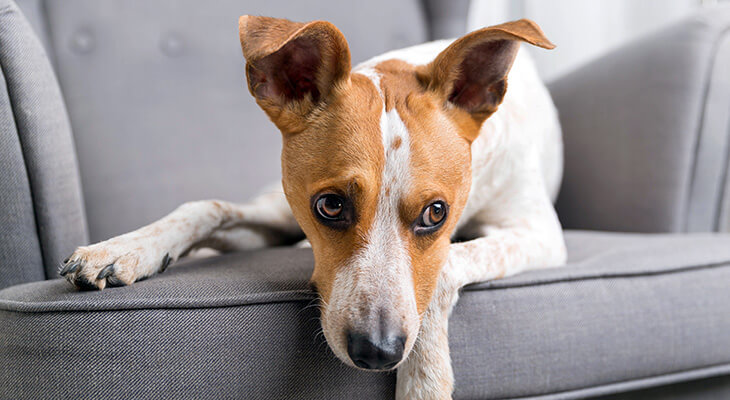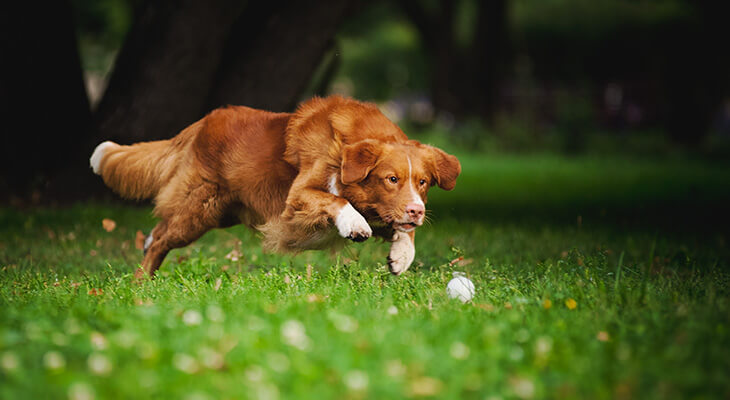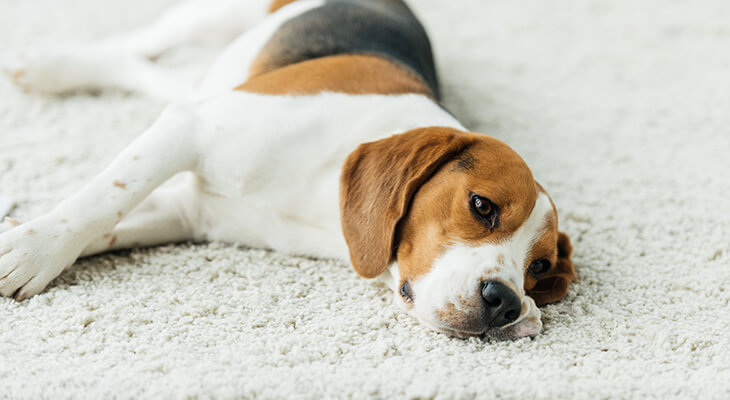We are all familiar with dog breath and “smelling like a dog” phrases. These commonly describe a particularly strong stench that can be too strong for some human noses. It is commonly used because dogs do have a distinct smell and a dog’s breath is definitely not pleasant when it is not taken care of.
Are you wondering, “Why does my dog stink no matter what I do?” Despite giving them a regular bath? All your attempts to change their grooming products, adding more perfumed products on them, don’t seem to be working much. So, what could be the reason behind this foul smell that just doesn’t seem to go away? Come, let’s find out.
Contents
Common Reasons Dogs Smell
Some of the common reasons your dog could be smelling strong despite all your efforts could be:
- Dental Issues
Dogs chew on everything in sight. The only way they know to check and test something is by putting it into their mouth. As a result, plaque and tartar formation can be high. When this is allowed to build up, the breath quality deteriorates, resulting in bad breath and other dental problems. Certain breeds are at a higher risk of contracting Gingival Hyperplasia – an overgrowth of the gums which results in food and other objects getting trapped under the gums and rot over time. As a result, their breaths smell bad no matter what you do.
- Allergies
Just like humans, dogs are prone to allergies too, but the effect on dogs is different from that on humans. While we humans can have watery eyes, sneeze a million times, and cough, dogs smell. Be it a food allergy or something in the atmosphere, it manifests into a skin problem, causing the skin to flake and smell. The inflammation can cause your dog to scratch more than usual, leading to injuries, which can then get infected and start smelling.
- Skin Infection
Now, these are more severe than the allergies discussed above. Yeast infections are common among dogs. Yeast can thrive if the conditions are conducive, and a dog’s fur is definitely very conducive. Yeast infection can be normally found and spread under the ears, skin folds, and between the digits in the paws. If your dog has been under stress recently, yeast infection could’ve spread.
- Seborrhoea
Seborrhoea is a condition where the dog’s skin starts scaling and flaking. It can be dry flaking or wet and greasy flaking. Seborrhoea can be primary or secondary. Primary seborrhoea is what the dog has mainly been influenced by its breed at a young age. When some other disease causes seborrhoea, it is classified as secondary seborrhoea.
Seborrhoea could be due to poor diet or poor hygiene conditions. Environmental factors. Hormonal changes (yes, dogs suffer from them too) or other bacterial and fungal infections.
- Kidney Issues
If your pet has an issue with its kidneys, it won’t be able to eliminate waste effectively. As a result, it will build up and result in a strong stench. If your dog seems to be thirstier than usual and urinates more frequently, it could be a strong indication that they have some issues with their kidneys.
- Diabetes
Yes, dogs can be diabetic too. When they have diabetes, their breath will have a distinct smell that won’t disappear with any product you use. Diabetes needs to be addressed medically for the smell to decrease.
- Ear Infection
Ears are the perfect spots for bacteria, fungi, yeast, and even ticks to grow and harbor. However, dogs are also prone to ear infections inside the ears. This could be swimming regularly but not drying the ears properly, trapping moisture due to repetitive exposure, or just the breed.
Just like how you find ear wax in human ears, you can find build-up in your dog’s ears. This should not smell, but it’s definitely a sign of an ear infection if they do.
- Issues In Anal Sac
These are two small sacs located next to your dog’s rectum. You can find them on either side. If you have noticed dogs in general, you would have seen some lick their hind end or even scoot and drag themselves along the floor to get some relief. This is an indication that they have an infection in their anal sac.
You need to get this checked immediately by your vet and get some help for your dog. The vet might manually express the infection before the sac ruptures on its own, resulting in an abscess that can cause a foul smell.
What Can You Do?
So, what can you do to help your pet and save yourself from all that smell? Be it any kind of infection, regular or even frequent baths with fragrant products will not suffice. You need to give your dog a medicated bath to help eliminate the infection. If the infection is eliminated, the stench will eventually vanish. Then you can use fragrant products to help your dog and its surroundings smell better.
Conclusion
Our dogs can be our world, and we need to take good care of them. If they smell, you need to get to the bottom of the cause and address it rather than just complaining about it and trying to bathe them more times.




